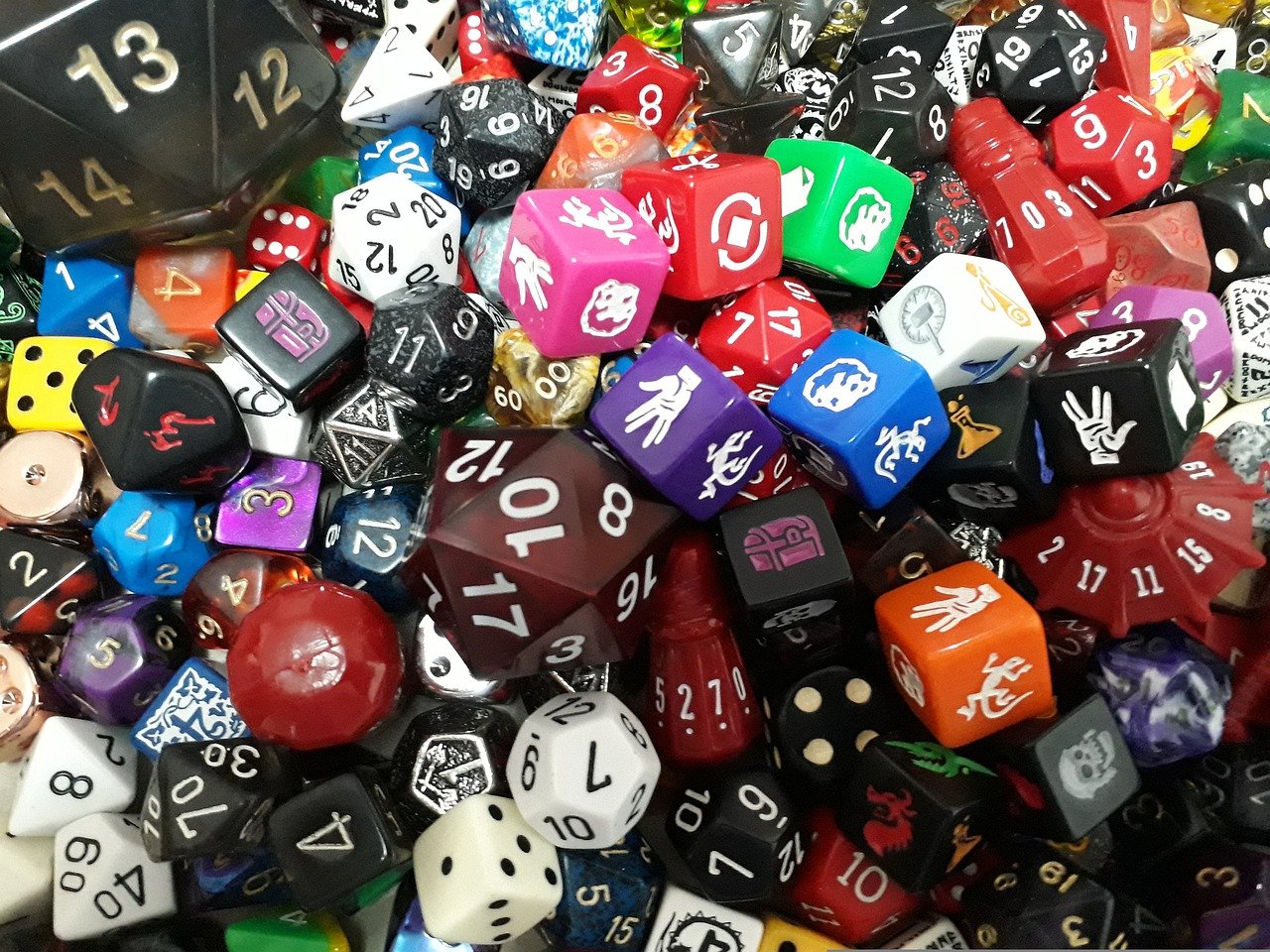One of the best parts about leveling up in Dungeons & Dragons is assigning ability score improvements. Normally, leveling up gets you access to higher level spells or other class features, but ability score improvements are something that can broadly affect how competent you are at your chosen skills, attacking, and how much damage you do.
Table of Contents
Assigning Ability Scores
Before we can explain how to improve them, let’s look at how you get your ability scores in the first place. When you initially design your character, there are a few ways to assign your ability scores. Most DMs have a preference, but the three main categories are: point buy, standard array, and rolled.
Point buy gives you 27 points to start and lets you spend those points to get ability scores. Every score starts at 8, and you can spend between 1 and 9 points to improve it up to a maximum of 15. Obviously, you could do that for three ability scores and leave the others at 8, but most people take a more balanced approach.
You can also choose standard array. This is the simplest method because you start out with an array of scores (8, 10, 12, 13, 14, and 15) and the only decision you need to make is where you want to assign each score. Nothing is left to chance. Remember, your character’s race will give you the option to add a +2 bonus to one score and a +1 bonus to another score so the highest score you could start with is 17.
The third option is rolled or manual. This is preferred by many DMs because it lets the dice decide what your starting scores will be. Most DMs have a minimum total score so that if you happen to roll very poorly, you can drop the lowest score(s) and reroll. Some DMs ask players to roll 4d6 and drop the lowest score. That becomes a single score that you can assign to whichever ability score you want.
Other DMs might have you roll 18d6 and make your six scores from that. Since you’re rolling, you could theoretically assign an 18 to a score (and with a racial bonus, bring it up to 20) which seems pretty high to start level 1 at, but it’s all up to your DM. From there, you can figure out the best way to schedule your ability score improvements as you level up.
Ability Scores
Below, we discuss the basics of each ability score and which classes typically focus on that score. Of course, just because your character is a Rogue doesn’t mean you have to put all of your ability score improvements into Dexterity, but you’ll likely want to emphasize your primary ability score because it dictates how effective you are at your class’s primary capabilities and attacking.
Sure, you could play a Druid with a very low Wisdom score, but unless you’re planning to multiclass or it’s for a silly one-shot it’s kind of shooting yourself in the foot to purposefully ignore the base for all of your magical abilities.
Strength
Your Strength score represents your character’s physical strength. When attempting to lift a heavy boulder, kick in a door, or grapple an opponent, a character’s Strength may be displayed. Athletics is the only skill that is affected by strength. When attacking with melee weapons or bare-handed, you usually add your Strength modifier to attack and damage rolls.
Classes that should focus on improving Strength are Barbarians, Fighters, and Paladins. If your class doesn’t rely on Strength for features or attacks, you should not invest ability score improvements in it.
Dexterity
Typical Dexterity checks may assess how well you maintain your balance on a slick road, how rapidly you can duck out of the way of an impending attack, or how softly you can move through a silent corridor. Acrobatics, Sleight of Hand, and Stealth are examples of Dexterity skills. Your Armor Class, or AC, is also affected by your Dexterity.
Your AC represents your ability to move out of the way or deflect blows. Because different types of armor allow for more or less movement, characters with low Dexterity may prefer medium or heavy armor because it provides more protection.
Classes that should focus on improving Dexterity are Monks, Rangers, and Rogues. Fighters and Paladins with ranged weapons should also improve it. Dexterity is pretty handy for all classes, though.
Constitution
Constitution assesses your vitality and resistance to adversity. Constitution primarily influences your hit points. You may need to perform a Constitution check to see if you can continue to hold your breath underwater or withstand blistering temperatures in the desert.
Your Constitution score is not associated with any skill checks. Nonetheless, many spellcasters make a lot of Constitution saving throws because they determine whether or not you can keep concentrating on a spell after taking damage.
Classes that should focus on improving Constitution are Artificers, Barbarians, Fighters, Paladins, and Sorcerers. However, since it affects your hit points, anyone could benefit from increasing their Con.
Intelligence
Your book smarts are your Intelligence. Arcana, Investigation, Religion, Nature, and History are Intelligence skills that rely on your capacity to recall learned facts about a subject. Characters with an Intelligence score of 7 or less may be illiterate.
Classes that should focus on improving Intelligence are Artificers and Wizards. If your class doesn’t rely on Intelligence for features or spellcasting, you should not invest ability score improvements in it.
Wisdom
Your street smarts are your Wisdom. Animal Handling, Insight, Perception, Survival, and Medicine are examples of Wisdom skills because they make use of your ability to intuit or get a feel for something. You can’t learn how to navigate a forest or gain the trust of an animal from a book. It occurs at a more instinctual level.
However, we disagree that Medicine is a Wisdom-based skill because nowadays, people go to school for over a decade to learn medicine. Wisdom also governs how much thought you put into plans and your ability to detect deception. Characters with low Wisdom scores are more likely to act rashly and without thinking things through.
Classes that should focus on improving Wisdom are Clerics, Druids, Monks, and Rangers. However, Wisdom saving throws are some of the most common in the game, and failing them often leads to becoming charmed or controlled by the enemy, so it’s definitely not a bad candidate for ability score improvements regardless of class.
Charisma
Charisma is the driving force behind your character’s personality. It focuses on your ability to persuade others to do things your way. Intimidation, Persuasion, Deception, and Performance are all Charisma skills. Although Insight is technically a Wisdom skill, Charisma is your primary ability score for social interactions.
Classes that should focus on improving Charisma are Bards, Paladins, Sorcerers, and Warlocks. If your class doesn’t rely on Charisma for features or spellcasting, you should not invest ability score improvements in it.
When Do Ability Score Improvements Happen?
For the majority of classes, ability score improvements happen at levels 4, 8, 12, 16, and 19 for a grand total of five throughout your adventuring career. It’s worth noting that the levels are broken down by class, not character. If you are a multiclassed Warlock and Rogue, you won’t gain an ability score improvement if you have two levels in each, even if that makes you a level 4 character. You must have four levels in a single class before you’re eligible for your first ability score improvement.
However, some classes receive extra ability score improvements as part of their class features, as we show below. These are classes where either the developers felt they were underpowered compared to other classes or where players often needed room to improve multiple ability scores.
Fighter
Fighters gain ability score improvements at levels 4, 6, 8, 10, 12, 16, and 19 for a total of seven.
Rogue
Rogues gain ability score improvements at levels 4, 8, 10, 12, 16, and 19 for a total of six.
How Do Ability Score Improvements Work?
Now that you know when to expect them, it’s time to discuss how ability score improvements work. When you’ve reached the appropriate level, you are presented with a choice between taking an ability score improvement or a feat. Although by now, most Dungeon Masters allow feats, remember that they are technically an optional rule, so you should always ask permission before deciding.
This choice often comes down to a simple question: do you want to improve your ability scores or gain new spells or abilities? While it’s true that some feats also include an ability score improvement, that is just a +1 bonus to one score. When you select ability score improvement, you can either allot a +2 bonus to a single ability score or +1 bonuses to two different scores.
The main thing to remember is that while certain magic items or class features may increase an ability score over 20, you can’t use your ability score improvements to bring an ability score total beyond 20. If you have a 19 in Dexterity, you cannot use your ability score improvement to push it to 21, even if you have +2 as a bonus. You must split that bonus and put the other +1 into another score.
Generally, how you allot these bonuses is based on your total scores. For example, if you are a Sorcerer, your main ability scores should be Charisma and Constitution. If you reach 4th level and your Charisma is 17, you might choose to put one point into it and the other into Constitution. The reason for that is only even numbers affect your modifier.
Ability Modifiers
The way that your attack rolls, damage rolls, and saving throw DCs are calculated all use your ability score modifiers. Saving throw DCs are your ability score modifier + 8 + proficiency bonus. Similarly, your attack rolls are your modifier + proficiency bonus + any other modifiers (magical items, class features, etc.)
| Ability Score | Modifier |
| 6 | -2 |
| 8 | -1 |
| 10 | 0 |
| 12 | +1 |
| 14 | +2 |
| 16 | +3 |
| 18 | +4 |
| 20 | +5 |


